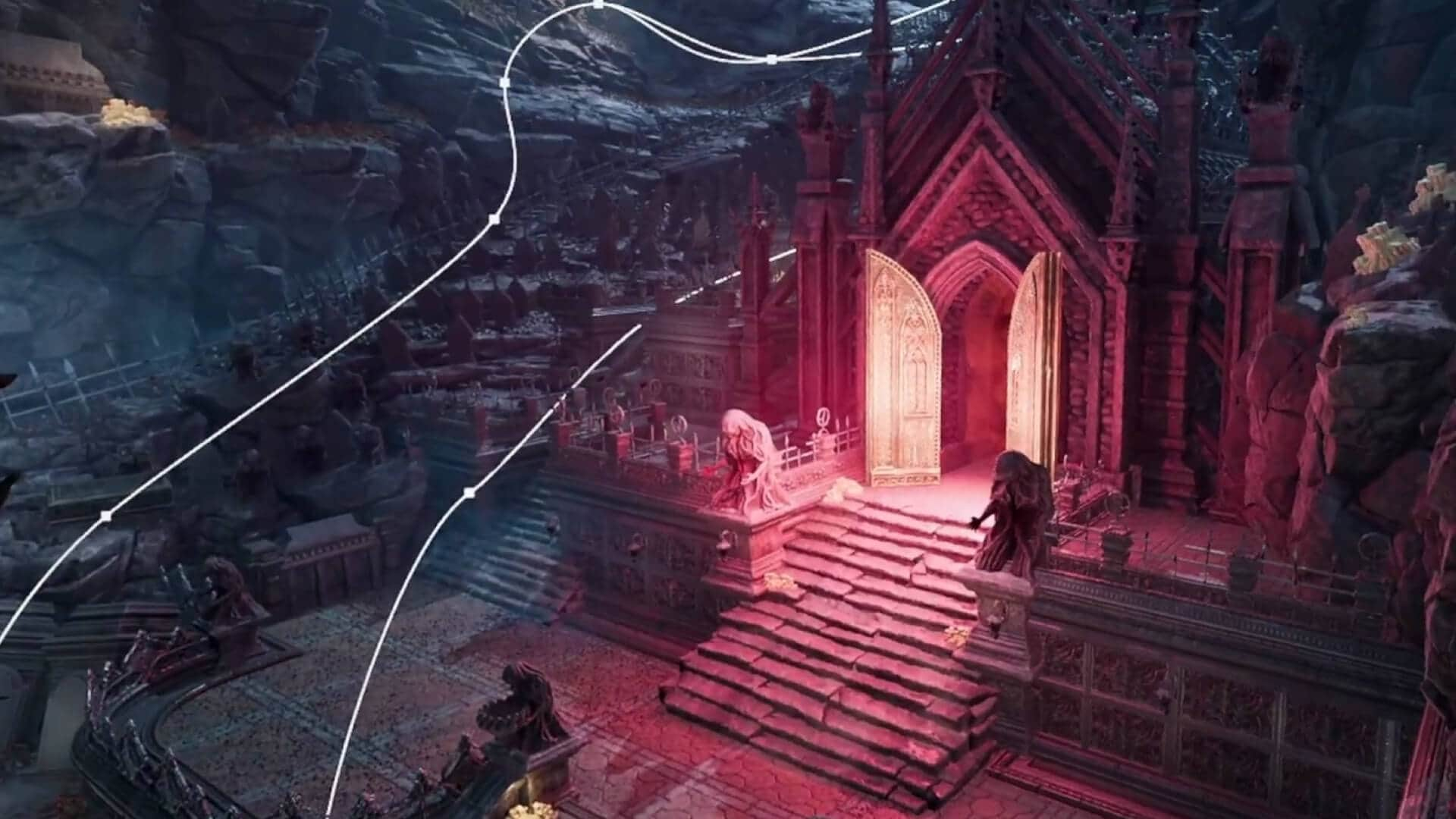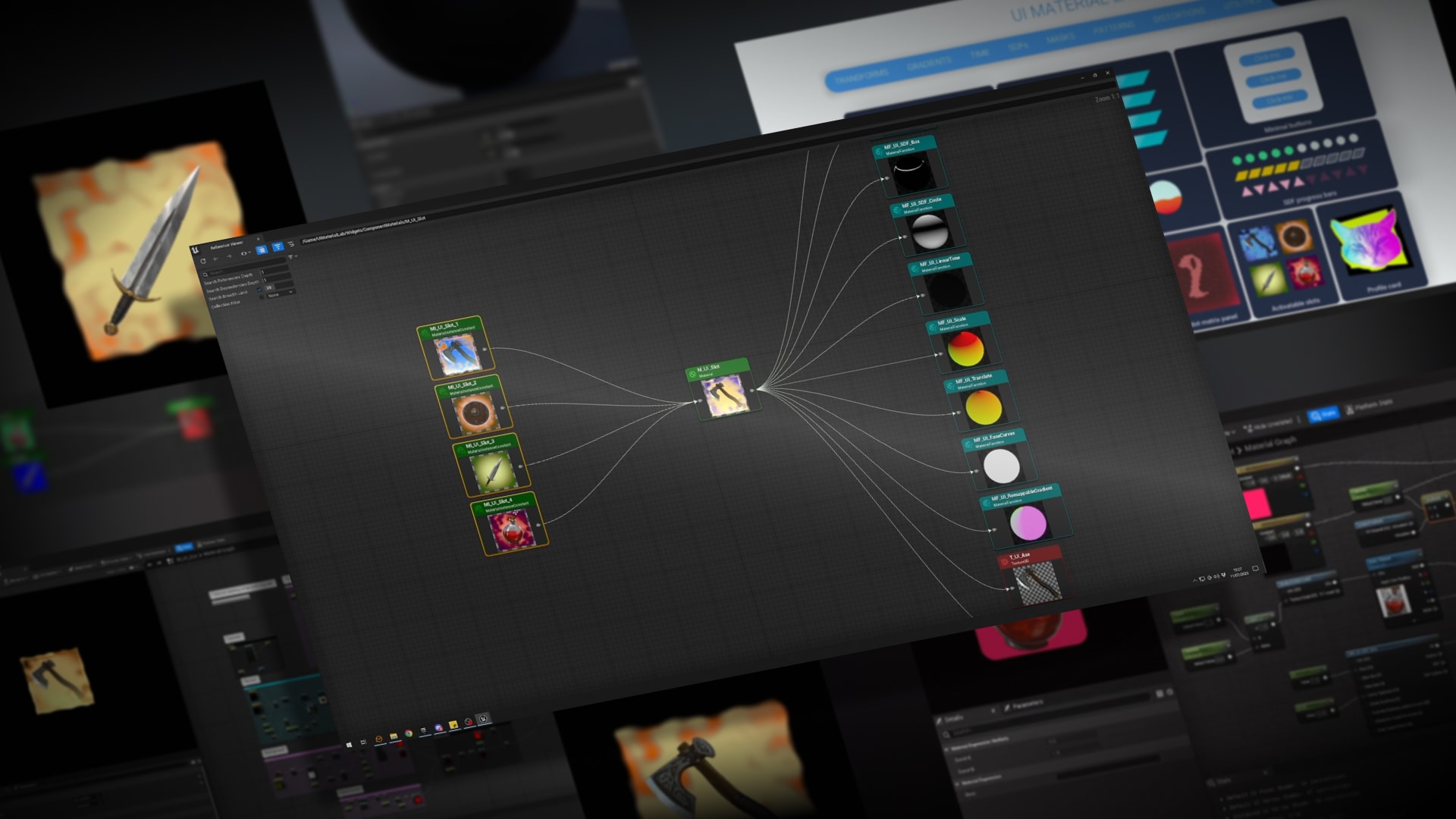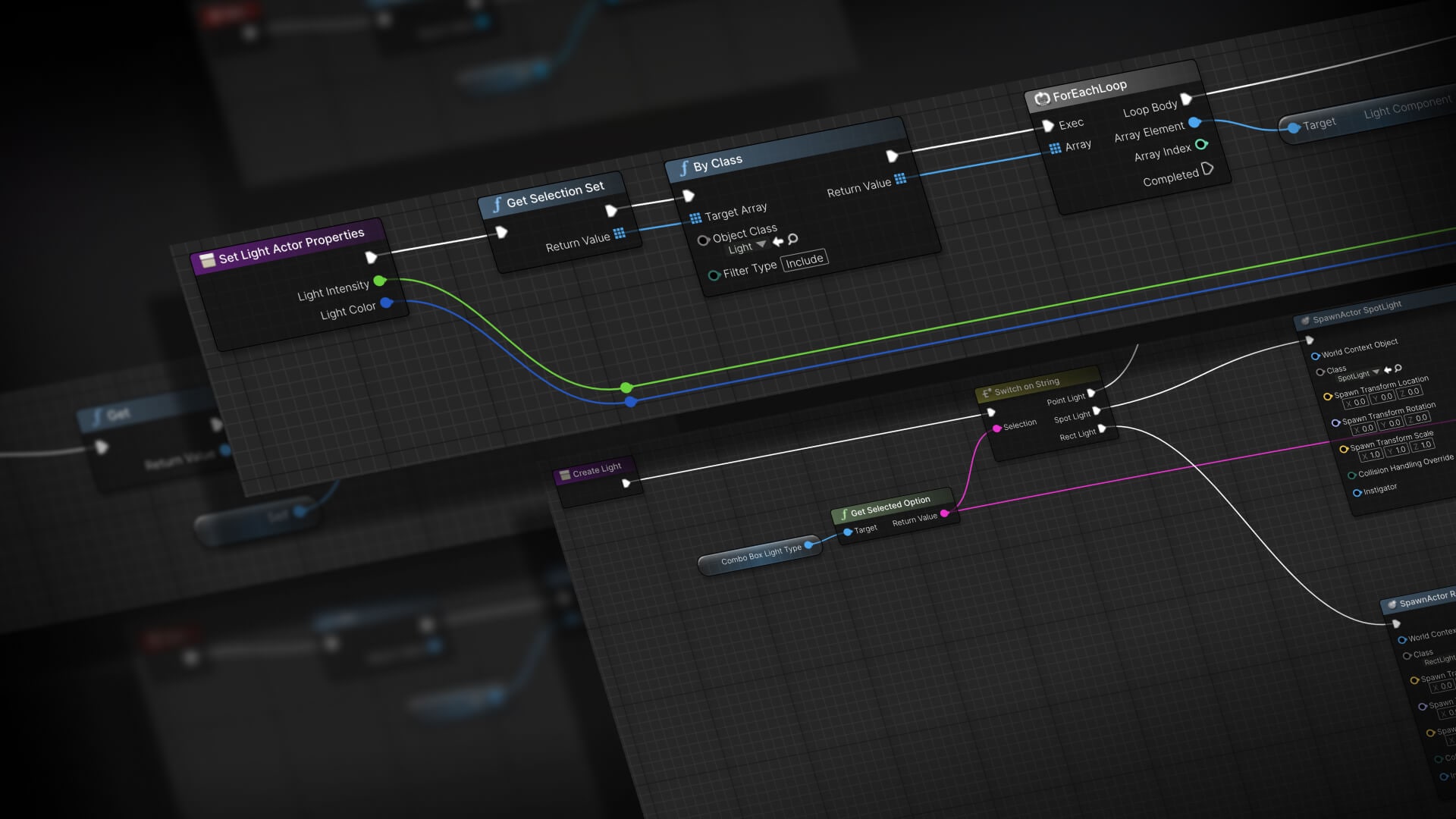
Dive into these brand new Unreal Engine courses and tutorials
From animating in Unreal Engine to simplifying your Blueprints, this month’s drop of learning content has plenty to sharpen your skills and expand your expertise.
New courses
Your First Hour With Motion Designer
Designed for everyone from beginners to veterans, this course is your gateway to mastering motion design in UE5. Learn to navigate the viewport, manipulate geometry modifiers, and harness the power of cloners and effectors. We’ll also dive into the Material Designer and review techniques for importing files, including SVGs.
Designed for everyone from beginners to veterans, this course is your gateway to mastering motion design in UE5. Learn to navigate the viewport, manipulate geometry modifiers, and harness the power of cloners and effectors. We’ll also dive into the Material Designer and review techniques for importing files, including SVGs.

Epic Games Game Design Certificate
Looking to start your journey as a game developer in Unreal Engine? This new Coursera Professional Certificate will teach you the fundamental skills needed to start a career as a game designer, artist, or programmer, as well as providing hands-on projects for your portfolio.
Looking to start your journey as a game developer in Unreal Engine? This new Coursera Professional Certificate will teach you the fundamental skills needed to start a career as a game designer, artist, or programmer, as well as providing hands-on projects for your portfolio.

Trending community tutorials
100 Incredibly Useful Unreal Engine Tips
You’ll need your notepad for this one…prepare for a comprehensive rundown of Unreal Engine tips and tricks that cover everything from asset creation and animation to programming and plugins.
You’ll need your notepad for this one…prepare for a comprehensive rundown of Unreal Engine tips and tricks that cover everything from asset creation and animation to programming and plugins.

Things You Didn't Know inside of Unreal Engine
There’s always more to learn in Unreal Engine—this handy tutorial will shine a light on some of the lesser-known tips, tricks, and shortcuts you might not have seen before.
There’s always more to learn in Unreal Engine—this handy tutorial will shine a light on some of the lesser-known tips, tricks, and shortcuts you might not have seen before.

Skeletal Mesh Optimization Guide
This helpful guide is for anyone looking to optimize skeletal mesh assets for animation, using a MetaHuman as an example.
This helpful guide is for anyone looking to optimize skeletal mesh assets for animation, using a MetaHuman as an example.

Epic talks and demos
Animating in Unreal: Habits & Customs of a Brave New World
Recorded at Unreal Fest 2024, this session sees Dimension Studio reveal how it customized workflows and developed tools to support its animators working in Unreal Engine. The talk includes an introduction to Unreal Engine for 3D animators accustomed to using Maya, looking at the parallels between the two worlds as well as the differences.
Recorded at Unreal Fest 2024, this session sees Dimension Studio reveal how it customized workflows and developed tools to support its animators working in Unreal Engine. The talk includes an introduction to Unreal Engine for 3D animators accustomed to using Maya, looking at the parallels between the two worlds as well as the differences.

De-spaghetti Your Blueprints, the Scientific Way
In this talk from Unreal Fest 2024, Valentin Galea of Hangar 13 Games explores how Blueprints can benefit from concepts such as cyclomatic and Halstead complexity or the maintainability index. It demonstrates practical ways to integrate these metrics into Blueprint nodes and explains what kind of measuring thresholds are useful in day-to-day development.
In this talk from Unreal Fest 2024, Valentin Galea of Hangar 13 Games explores how Blueprints can benefit from concepts such as cyclomatic and Halstead complexity or the maintainability index. It demonstrates practical ways to integrate these metrics into Blueprint nodes and explains what kind of measuring thresholds are useful in day-to-day development.

More Epic tutorials
Materials and Textures for UI
This course provides the foundational knowledge needed to use materials and textures in UE5 with UI and UMG elements. It covers importing textures and texture properties, and takes a comprehensive look at what materials are and how they’re used, as well as identifying common nodes and explaining why they’re used in certain applications.
This course provides the foundational knowledge needed to use materials and textures in UE5 with UI and UMG elements. It covers importing textures and texture properties, and takes a comprehensive look at what materials are and how they’re used, as well as identifying common nodes and explaining why they’re used in certain applications.

Getting Started with Editor Utility Blueprints
In this course, we explore different ways to customize your Editor workflows using Editor Utility Blueprints. You’ll learn how to set up scripted actions; create and run Editor Utility Widgets; add your own custom menus and buttons to the interface; and much more.
In this course, we explore different ways to customize your Editor workflows using Editor Utility Blueprints. You’ll learn how to set up scripted actions; create and run Editor Utility Widgets; add your own custom menus and buttons to the interface; and much more.

LOOKING FOR MORE LEARNING CONTENT?
There are tons of learning resources and tutorials to explore on the Epic Developer Community (EDC). Dive in and start sharpening your skills.